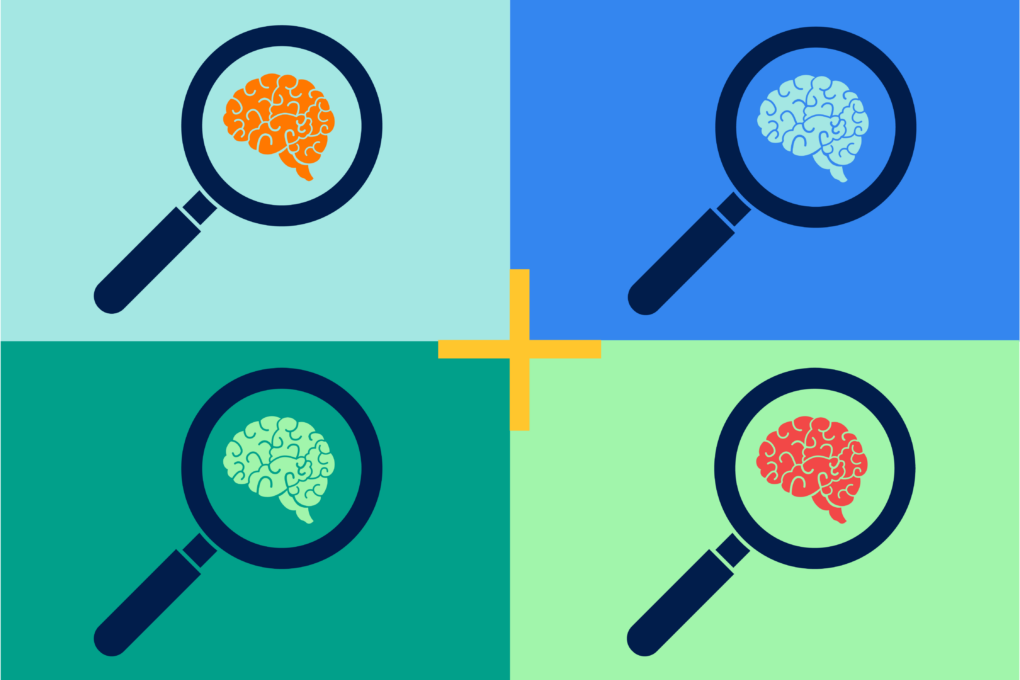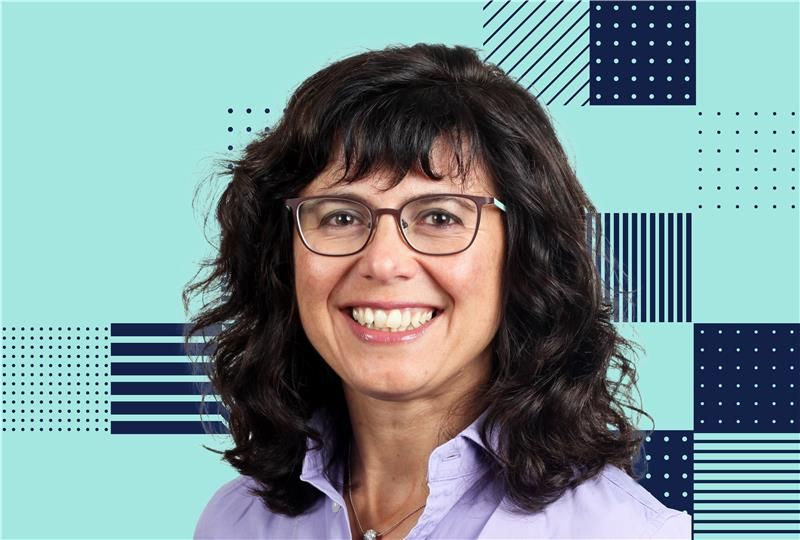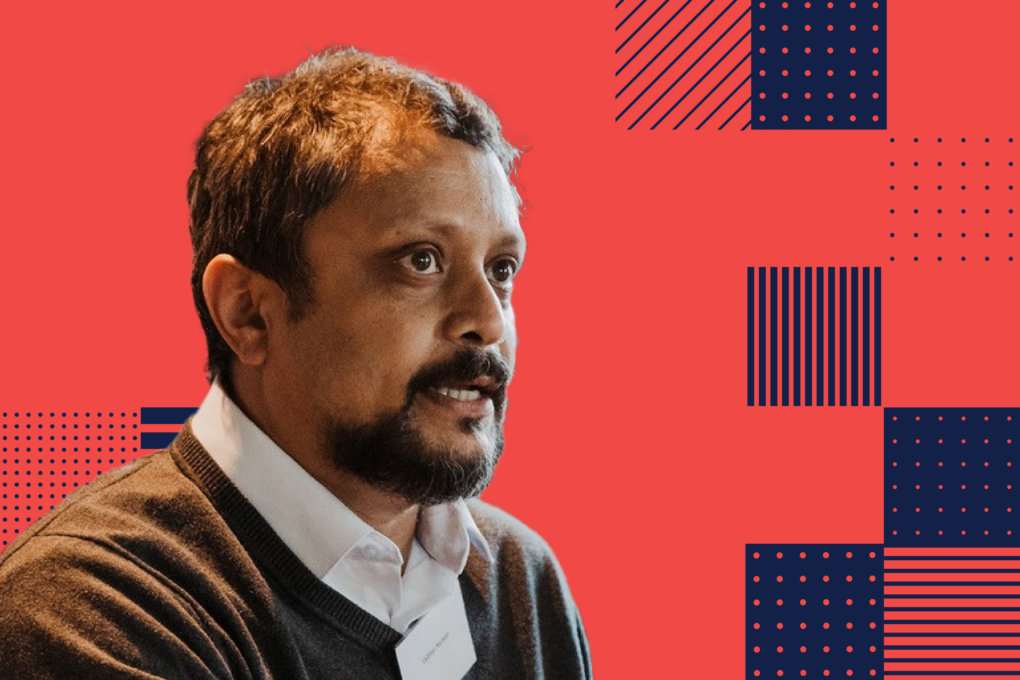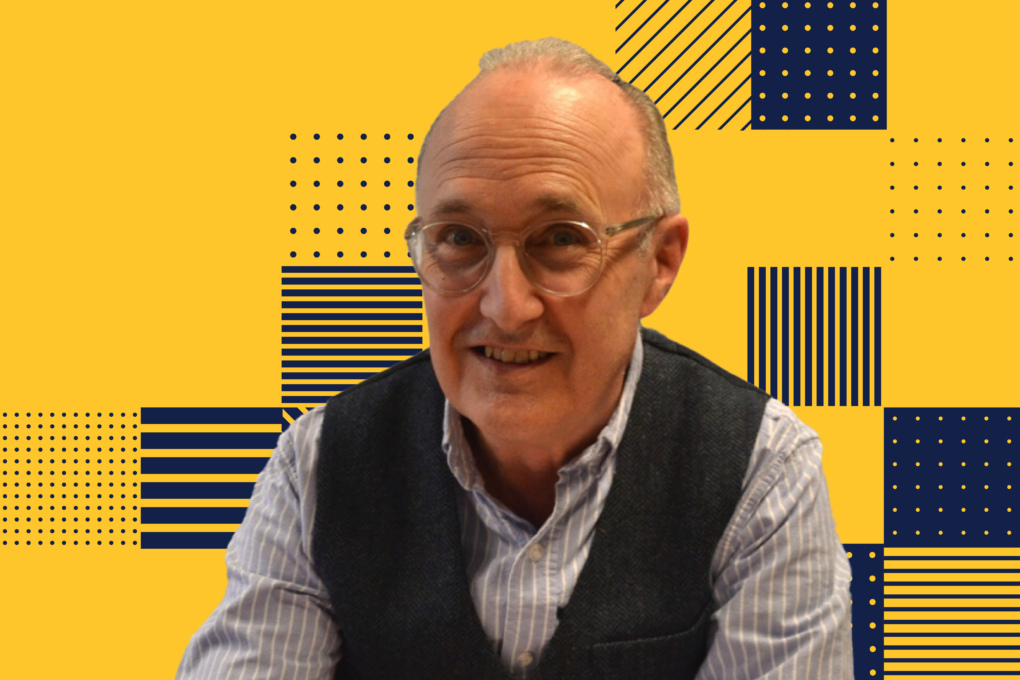How Our Future Health can transform dementia research

Until recently, there hadn’t been much obvious progress in the science of diagnosing and treating dementia.
But it seems decades of investment and research are beginning to pay off. In 2023, a drug called lecanemab was proven to slow mental decline in patients. It was followed by a second drug, called donanemab.
“This is an exciting time in dementia research,” says Dr. Vaibhav Narayan, Chief Industry Officer for the UK Mental Health Mission. “We’re finally heading for a step change in how we prevent, diagnose and treat these conditions.
“For the first time there are now two treatments on the market. The drugs are not perfect, but they are a big step forward. Perhaps the most important thing they’ve done is create an environment in everyone’s minds that something can be done about Alzheimer’s.”
Our Future Health hopes to further enhance that environment. This year, we welcomed our first registered researchers. It means dementia researchers can now apply to access the world’s largest health research programme of its kind.
“Our Future Health is proud to be joining the global research effort that’s gathering pace in the area of Alzheimer’s and dementia,” says Professor Michael Cook, Executive Director of Science at Our Future Health.” Our programme is designed to facilitate the exact type of research that’s needed to speed up understanding around these diseases.
“We’ve already welcomed some world class researchers into our programme. We also have close partnerships with key charities in the area, such as Alzheimer’s Research UK, Alzheimer’s Society and LifeArc.”
The size of the dementia problem

According to Alzheimer’s Research UK, almost 1 million people in the UK live with dementia, which is characterised by poor memory, confusion, and communication difficulties. Half of us will be directly affected by dementia in our lifetimes.
“Dementia is actually an umbrella term for a group of symptoms,” says Dr. Giovanna Lalli, Director of Strategy and Operations at medical research charity LifeArc. “About 60 to 70 per cent of cases are due to Alzheimer’s disease. We know that this is due to an aggregation of toxic proteins and other changes in the brain, which cause neuronal loss.”
Dementia has a high social cost, with around £35 billion a year currently spent on healthcare as well as social and informal care. The cost is predicted to rise to £94 billion by 2040.
Knowing your risk earlier

And yet, according to a Lancet Commission, nearly half of all cases worldwide could be prevented or delayed. The Commission describes 14 risk factors, which can all be modified – which means action can be taken to lower an individual’s risk. The factors include having high LDL cholesterol, hearing loss, and social isolation.
“Researchers will be able to use Our Future Health data to find out more about these 14 factors and the impact they have on people,” says Vaibhav. “They will also be able to look at how the factors interact with other conditions people have.
“Data from Our Future Health could even help researchers find new factors too. These kinds of insights can only come from large-scale real-world studies like Our Future Health.”
Professor John Gallacher, Professor of Cognitive Health at Oxford University, picks up the theme. “There’s lots of work going on in this area, but none at the scale of Our Future Health,” he says. “Because of its size, it will eventually inform prevention, as well as treatment.” For example, researchers could use our large volunteer group to look at the effect of specific lifestyle interventions before people develop dementia.
“If you can shift everyone’s behaviour towards a healthier lifestyle even by a little, you reduce those at the high-risk end by a lot,” says John.
Quick, simple diagnosis

Another important area of dementia research is to find better, quicker, cheaper and earlier methods of diagnosis. “Our Future Health has the potential to help identify tests for dementia that can be used in the NHS and more widely,” says John.
Better diagnosis is important because, as Alzheimer’s Society estimate, a third of people over 65 in England who are living with dementia currently go undiagnosed. Those who do get a diagnosis wait, on average, a year to see a clinician.
“There’s a big problem of under-diagnosis and misdiagnosis of dementias,” says Giovanna. Blood tests that are currently under research may be part of the solution. “They will help us diagnose people in a much more efficient way,” she says.
A blood test could look at both genetic information and other types of biomarkers to predict or diagnose dementia. “There has been tremendous progress in blood-based biomarkers for Alzheimer’s disease,” says Vaibhav. “It would be a game changer because it promises to greatly reduce the cost and accessibility of diagnostics.”
This is where Our Future Health comes in. Our volunteers’ blood samples could be used to help improve biomarker accuracy because they are linked to clinical data. It means researchers can see who develops dementia, and then analyse blood samples taken before their diagnosis to search for clues to the disease’s existence.
“This could eventually lead to a blood test that could predict the onset of dementia, say, ten years before symptoms,” says Vaibhav.
The power of cognitive testing
There’s a second kind of test that’s in development, to spot cognitive decline before symptoms become obvious. It’s called a digital cognitive test.
“A cognitive test, taken at intervals over time, can show the very early signs of decline before any obvious symptoms,” says John. “It might test memory, reaction time and executive function, which means your ability to make decisions.
“For example, we could use a digital app on a smartphone, to test and track cognition. It would show if someone’s cognition is changing to an extent that can’t be explained by normal ageing.”
A handful of companies are developing tests in this area. Michael says it’s an area of research that Our Future Health is currently exploring. “We’re looking for funding and collaborations to help us include a gamified, cognitive test as part of Our Future Health. If we could ask our volunteers to do this kind of test, it would enable studies that could really move the needle on brain health research. Researchers could also use this information to select potential volunteers for further studies, aimed at preventing the onset of dementia and enabling earlier diagnosis.”
“This is a huge opportunity within Our Future Health,” says Vaibhav. “If the programme were to introduce a measure of cognition, it would go a long way towards making the genetic data even more useful from an Alzheimer’s and dementia point of view too.”
The fact that there’s a wide spread of ages of Our Future Health volunteers is an advantage here, according to Vaibhav. “By the time people go to a neurologist with memory problems, they are often very far along in disease. Our Future Health would be able to pick up people at a younger age when interventions are more effective.”
Accelerating progress with trials
“Before we adopt any intervention for prevention or for therapy, we need trials to see how effective each one is,” says John. “The design of Our Future Health is very helpful here, as it can help researchers recruit people to trials. This will make them quicker and cheaper.”
“It’s not easy to recruit people into trials for brain health and dementia and Alzheimer’s. Partly because you can’t just go to a healthcare system and pick out these people. But as Our Future Health will have longitudinal data, people running the trials can be certain that a person is at an early stage of the disease, and that is the sweet spot for research.”
“Our Future Health will reduce the cost of clinical trials dramatically,” says Giovanna. “It will help accelerate drug development, potentially getting more drugs to those who need them most.”
Meet Our Future Health’s charity partners
We are partnered with leading dementia charities, which work to improve the prevention, diagnosis and treatment of these diseases.
Here’s some of the things our partner charities have been working on:
- Alzheimer’s Society and Alzheimer’s Research UK are two of the biggest charitable funders of dementia research in the UK, supporting research into diagnosis, new treatments, care and understanding the underlying causes of dementia.
- LifeArc is a self-funded medical research charity expert in turning promising science into breakthroughs for patients in areas of unmet need. The charity played a key role in the discovery of the molecule at the heart of lecanemab. It is a member of the NEURii initiative and other partnerships that focus on biomarkers and digital solutions to improve early detection, diagnosis and care.
- Together with the Medical Research Council, Alzheimer’s Society, Alzheimer’s Research UK, LifeArc and the British Heart Foundation fund the UK Dementia Research Institute, uniting world-leading researchers in eight universities across the UK. Its purpose is to transform the outlook for people living with or at risk of neurodegenerative conditions.
- Alzheimer’s Society and Alzheimer’s Research UK part funded the Lancet Commission study mentioned in this article. The study identified 14 risk factors for developing dementia and suggested that that nearly half of dementia cases across the world could be delayed or prevented.
- Alzheimer’s Research UK is spearheading the Drug Discovery Alliance – an ambitious strategic initiative, launched in 2015, creating three dedicated drug discovery institutes. The institutes all work to translate new findings from academic research into potential treatments as quickly as possible.
- In April 2023, Alzheimer’s Society and Alzheimer’s Research UK, together with the National Institute of Health and Care Research, jointly launched the Blood Biomarker Challenge, which hopes to revolutionise the way dementia is diagnosed. The project is gathering the information needed to introduce a blood test for dementia into UK healthcare systems.
If you are affected by dementia, worried about a diagnosis or a carer, Alzheimer’s Society trained staff can provide support. Please call 0333 150 3456.

Let’s prevent disease together
By volunteering for Our Future Health, you can help health researchers discover new ways to prevent, detect and treat common conditions such as diabetes, cancer, heart disease, stroke and Alzheimer’s.